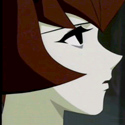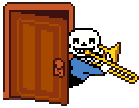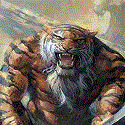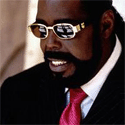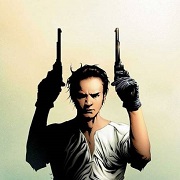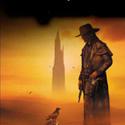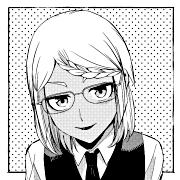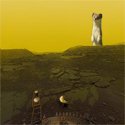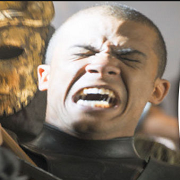|
A lot of people complain that book 2 was worse than Lies of Locke Lamora. I suppose I agree, but where the first book was a 10/10 for me, the second was maybe 8/10 (still a fantastic read).
|
|
|
|

|
| # ? May 9, 2024 23:17 |
|
Yes, Lies was a pretty hard act to follow. One has high hopes for the next one (loving finally coming out).
|
|
|
|
Hieronymous Alloy posted:Hrm, maybe I should give it another chance and re-read it assuming it's a deconstruction. It just uses a lot of stuff that's very clearly drawing on the 1st Edition D&D manual, but I hadn't considered the possibility she was trying to deconstruct the idea. If you go to Amazon and look at the review titled "The true Way of the Paladin is shown here." (Ryk E. Spoor), he discusses an email exchange where she was observing a game and thought it was all wrong.
|
|
|
Hieronymous Alloy posted:Hrm, maybe I should give it another chance and re-read it assuming it's a deconstruction. It just uses a lot of stuff that's very clearly drawing on the 1st Edition D&D manual, but I hadn't considered the possibility she was trying to deconstruct the idea. Even better is that the followup series, Paladin's Legacy, which was started after like a twenty year break, isn't on the same single-person scale that Deed is. It's mostly about rulers of countries and institutions in the wake of the stuff that happens in Deed, with only a relatively small part being adventurer-scale stuff. And Paksenarrion is no longer the protagonist.
|
|
|
|
|
Yeah, I think even if the first trilogy is too much a product of 80s D&D for people, the newer series she's doing should be a lot more readable, it sheds a lot of that stuff.
|
|
|
|
syphon posted:A lot of people complain that book 2 was worse than Lies of Locke Lamora. I suppose I agree, but where the first book was a 10/10 for me, the second was maybe 8/10 (still a fantastic read). Yeah, it's worse in the sense that a well-made burger is worse than a well-made steak. I still prefer it most other stuff out there. Which reminds me, Amazon sent me a mail again that they still don't know a release date for Republic of Thieves. Apparently I pre-ordered it nearly 2 years ago...
|
|
|
|
That's weird because it's definitely coming out in like a couple months now.
|
|
|
|
neongrey posted:That's weird because it's definitely coming out in like a couple months now. Yes, it's confirmed for October. We should see more volumes on a less geological timeline, too - one of the biggest holdups with Republic of Thieves was that Lynch realised he'd made a major error in Locke's game and would have to rewrite it from scratch.
|
|
|
|
Hey andrew smash I finally got a copy of Ship of Fools.
|
|
|
|
General Battuta posted:Normally I would say 'read a book by a woman' but I actually don't know of any epic fantasy series by women that I would recommend off the top of my head The Deverry series by Katharine Kerr (at least the first 4 books, or first 8, both of which are reasonable stopping points)
|
|
|
Jedit posted:Yes, it's confirmed for October. We should see more volumes on a less geological timeline, too - one of the biggest holdups with Republic of Thieves was that Lynch realised he'd made a major error in Locke's game and would have to rewrite it from scratch. Oh man, would love to be a fly on the wall during that revelation.
|
|
|
|
|
General Battuta posted:Hey andrew smash I finally got a copy of Ship of Fools. excellent, glad to hear your thoughts on it when you finish.
|
|
|
|
I would like to recommend the Left Hand of God trilogy by Paul Hoffman. It is set in a world that is based on our world, but everything have been rearranged and renamed. The main protagonist Thomas Cale grows up in a cloister/prison camp (called the Sanctuary) and is indoctrinated to be a soldier of God called a Redeemer, where the training is extremely brutal and apparently based on Catholic Schools in the 60s. Thomas Cale is an extremely talented fighter and strategist, and he escapes with 2 friends and ends up in something similar to Renaissance Italy with different power factions. The world is without any form of magic, the technology level is pre-gun powder and a lot of focus is on different battles. Hoffman mixes a lot of events and battles from human history into a interesting setting. For instance you have the Redeemers which is a mix of the Nazis and the Inquisition, you also get British Spartans fighting in the Middle East, as well as the Czech war wagons. It is a very cynical world, with only shades of grey separating good from bad, apparently based on the authors own experiences. Thomas Cale and his friends are no good guys, and are basically psychopaths. They are somewhat similar to Jorg in Prince of Thorns, in that it is interesting to read about the protagonists but they are really not good guys. Not as much rape as in Prince of Thorns, which is a good thing. I particularly liked the description of the battles and the preparation of them. Hoffman has a tendency to become rather wordy sometimes which leads to fast endings when he runs out of pages for the book.
|
|
|
|
Sionak posted:After reading Wheel of Time, I think Hobb's more grounded fantasy kingdoms would be a reasonable next stop. Mad Ship's pretty fun, but I think Assassin's Apprentice is a fine place to start with Hobb's stuff - and if you don't like her writing/plots, you'll be able to tell pretty quickly. Seconding this. Also, her last trilogy(+1)finished up a few months back, so if you're a Hobb fan, you can go read The Rain Wild Chronicles complete. I don't feel it was quite as strong as her Liveship trilogy, but I enjoyed it nonetheless. Don't attempt unless you've read/enjoyed the Liveship books.
|
|
|
|
So I read God's War on a recommendation from here and I really didn't like it. Felt like it had way too much action and violence and not enough character development and ideas. It just felt kind of shallow and YA if that makes sense. Next I read Revelation Space which I thought was excellent. It was pretty much the opposite of God's War. Not a ton of action but packed full of ideas and so full of details that I think it would take a second read to really get all of it.
|
|
|
|
Ship of Fools/Unto Leviathan was wonderfully atmospheric for a good section of its length, and good God did it have one of the best 'oh poo poo' moments I've ever read. But I don't think it really delivered on a lot of its potential. The derelict alien ship and the mystery of the hook room(s) were compelling and frightening, and in combination with the constant meditations on the nature of evil, they seemed to be pointing towards a compelling philosophical-dread climax like Blindsight's. But when the alien force involved ultimately tipped its hand, it seemed mostly ineffectual, its malevolence banal even on the physical - let alone the philosophical - level. I found the conclusion frustrating not because it was open-ended but because the clues it dropped seemed to point towards a pretty dry and familiar solution: aliens live on a big haunted ship and lure people in to mount them on meat hooks. We had so many horrible clues - the psychological effects of the ship on the explorers, the possibly self-inflicted massacre on Antioch, the priest's chilling suicide after he reported literally losing his connection to God - that the eventual reveal of some shapeshifting claw aliens felt like a sort of authorial surrender: 'I don't know what this all meant!' The other difficulty I hit at first was Russo's very plain, direct style, but while a bit distracting in its simplicity it washed out pleasant enough by the end. I almost wish I'd only read the first half of the book, because it built up such a wonderful atmosphere of dread. I dunno. Am I coming at it from the wrong angle? I'll give it this, it was some very effective space horror for a very long time, and that's not something we have enough of. I just felt like it was hinting at being a much better, much more frightening book than it turned out. e: The more I think about this the more I feel like Russo must have been writing towards something else. Why else the subplot about the Church archives, which might shine light on the ship's past journeys? It never pays off, but it seems like it could've hinted at past encounters with the alien ship (that's what I expected, at least) or some other deeper, more interesting connection. Similarly, the book's opening scene shows the bishop overseeing the construction of a machine that figures into his plans, but we never find out what the machine is for. General Battuta fucked around with this message at 14:06 on Jul 26, 2013 |
|
|
|
He's supposed to be working on a sequel, so hopefully he revisits some of the abandoned plot hooks you mentioned. I do agree that the ending fell apart a bit, but drat it was a great journey getting there.
|
|
|
|
|
I know its not an awfully long book but wow you chewed through that one quickly. I felt the same about Ship of Fools, really enjoyed it but it had some pretty significant plot holes and dangling threads. Russo definitely seemed conflicted on what direction to take the story at times too. I liked that the ship was an aloof, almost indistinct presence, it made the awakening at the end of the book more disturbing and alien. Unfortunately the excellent climax is sort of wasted because their motivations are never explained and everything we can infer is based on the colony they encounter earlier in the book.
|
|
|
|
quote:I do agree that the ending fell apart a bit, but drat it was a great journey getting there. It really was. Right at the following passage, after they find the hook room on the ship: (seriously don't highlight this if you are going to read the book, really don't) Antioch. Antioch. The old woman had said she'd been rescued from Antioch. I had to stop and yell
|
|
|
|
Has anyone read anything by Catherynne M. Valente? I'm curious because Haikasoru, an imprint of Japanese SF, released a book of her titled The Melancholy of Mechagirl.
|
|
|
|
Schneider Heim posted:Has anyone read anything by Catherynne M. Valente? I'm curious because Haikasoru, an imprint of Japanese SF, released a book of her titled The Melancholy of Mechagirl. Yes, I read The Orphan's Tales: in the night garden. It was extremely good, one of my favorite books this year. Well written and a fantastic story.
|
|
|
|
Schneider Heim posted:Has anyone read anything by Catherynne M. Valente? I'm curious because Haikasoru, an imprint of Japanese SF, released a book of her titled The Melancholy of Mechagirl. I really liked Deathless, which was kind of a modern adaptation of Russian folklore kind of similar to how Neverwhere was a modern fairy tale. I didn't like Silently and Very Fast, though, so anecdotally her fantasy is better than her sci-fi. But if there's 13 short stories in that collection then I'm sure there's going to be a few that are great. e: Also, has anyone in the UK picked up Broken Homes by Ben Aaronovitch yet? It's not out on the US kindle store until next February, and shipping for a hardcopy takes like 3 weeks. The wait is killing me 
regularizer fucked around with this message at 19:12 on Jul 27, 2013 |
|
|
|
Walh Hara posted:Yes, I read The Orphan's Tales: in the night garden. It was extremely good, one of my favorite books this year. Well written and a fantastic story. In The Night Garden is also a hosed up British childrens television show. https://www.youtube.com/watch?v=o6TBAedCxss
|
|
|
|
Schneider Heim posted:Has anyone read anything by Catherynne M. Valente? I'm curious because Haikasoru, an imprint of Japanese SF, released a book of her titled The Melancholy of Mechagirl. Yes, she's one of the best prose stylists working today and an incredibly prolific, challenging, important author. That said, a lot of her work requires real effort to read because it's so loving lush and dense.
|
|
|
|
General Battuta posted:Yes, she's one of the best prose stylists working today and an incredibly prolific, challenging, important author. That said, a lot of her work requires real effort to read because it's so loving lush and dense. I dunno, I felt it went down quite smoothly, in a modern-fairytale sort of way.
|
|
|
|
regularizer posted:e: Also, has anyone in the UK picked up Broken Homes by Ben Aaronovitch yet? It's not out on the US kindle store until next February, and shipping for a hardcopy takes like 3 weeks. The wait is killing me February? What the hell? I was figuring we would get that here on kindle sometime later this summer.
|
|
|
|
General Battuta posted:Yes, she's one of the best prose stylists working today and an incredibly prolific, challenging, important author. That said, a lot of her work requires real effort to read because it's so loving lush and dense. That sounds really nice. I'll get a few of her books, then!
|
|
|
|
Darth Walrus posted:I dunno, I felt it went down quite smoothly, in a modern-fairytale sort of way. I think it depends on which one you're talking about. Palimpsest in particular I had to read in small sections because, as ridiculous as it sounds, the prose felt physically filling.
|
|
|
|
I had a chance to read a few books here in the last couple weeks. Started off with Rendezvous with Rama, which is a great description of explorating of an alien arcology project, but not so good of a story. It's weighted down a lot by Clarke's typically flat characters and annoying habit of having them do dangerous things but have everything turn out alright in the end. I wish Clarke had been a better writer, he came up with so many cool ideas and usually was only able to make mediocre stories out of them. Gregory Benford's Against Infinity was an interesting blend of literary and hard sf that I kind of wish there was more of. It's got the great science-fictiony creations that I love hard sf for, but it's got a lot of allegorical undertones about the loss of wilderness and the encroachment of civilization on the spirit. In the last couple of days I've been working my way through Gibson's Count Zero. It's definitely a lot easier to work through than Neuromancer, but I think part of that is because I'm now familiar with most of Gibson's technojargon by this point. Still, I can't help but think that he backed off a bit on the information density that's in Neuromancer. My big problem with the book is that he takes his sweet time tying together the individual plot threads, and I was kind of going from 'cool, I wonder how these plot threads will come together' to 'come on, at least start tying these together so I can see where they're going!'. It was like reading three separate stories, but having my attention for one story broken by the other two stories interrupting it. I also feel like the whole Marly looking for the mysterious artist subplot was recycled wholesale by Pattern Recognition. I'm about 3/4 of the way through Count Zero and it doesn't feel like that particular subplot has diverged all that much from Pattern Recognition.
|
|
|
|
Venusian Weasel posted:I had a chance to read a few books here in the last couple weeks. The thing about Clarke, to me is that he had really good ideas that are short-story length. When he was writing short stories they were punchy, interesting, and sent your mind going down interesting paths. But why write 15 short stories, and sell them as one book, when you can write a short story worth of idea lard it up with dull characters having dull thoughts at a novel length tome, then have a ghost write three sequels to your short-story sized idea....Then go back to your back catalog, and re-sell all your old short story ideas as novels too. The Sentinel (what would eventually be larded out into 2001 et. al) was punchy and interesting, and about 15 pages long. Same with Childhood's End, and I'm pretty sure Rama was originally a pretty good short story as well. Pick up a copy of "Tales from the White Hart" if you want some uncut Clarke 50's-ness.
|
|
|
|
Slo-Tek posted:The thing about Clarke, to me is that he had really good ideas that are short-story length. When he was writing short stories they were punchy, interesting, and sent your mind going down interesting paths. I've got most of his short story collections, because honestly they're the best part of his catalog, but I still think a lot of them are mediocre at best. All the problems from his novels are still there, they just don't have the time to manifest themselves. There's a few stories that I'm thinking of where the characters get into dicey situations, but they're really missing a sense of danger or consequence. Not to say that he could write some legitimately awesome short stories (the ending of The Nine Billion Names of God for one is shocking and fantastic), but by and large they just fall into an area where the execution on the idea is kind of lacking.
|
|
|
|
Clarke's The City and the Stars is a legitimately brilliant novel but even there you can make an argument it's a short story that just happened to have a novella's worth of implications.
|
|
|
|
|
Venusian Weasel posted:My big problem with the book is that he takes his sweet time tying together the individual plot threads, and I was kind of going from 'cool, I wonder how these plot threads will come together' to 'come on, at least start tying these together so I can see where they're going!'. It was like reading three separate stories, but having my attention for one story broken by the other two stories interrupting it. I also feel like the whole Marly looking for the mysterious artist subplot was recycled wholesale by Pattern Recognition. I'm about 3/4 of the way through Count Zero and it doesn't feel like that particular subplot has diverged all that much from Pattern Recognition.
|
|
|
|
Venusian Weasel posted:I had a chance to read a few books here in the last couple weeks. If you liked the Rama concept then the sequels (Rama II, Garden of Rama and Rama Revealed) might be worth looking into based on your comments. The style is quite different and they spend a lot more time on character development than the first one, following the same core of characters throughout, I think primarily due to the fact that they were mostly written by Gentry Lee with Clarke sort of consulting on them. Also yeah, the characters who make bad decisions often end up paying for them. There are pros and cons (Lee's writing is a bit trashier and he's prone to including fairly gratuitous sex scenes) but overall I enjoyed them, though it's been a while since I read them. Maybe give Rama II a try and see if you like it.
|
|
|
|
I think I'd contra-recommend that. The character development is generally puerile and the direction the series takes with respect to Rama and its ultimate origin and purpose feels vastly unlike anything Clarke would have written. The Rama PC game based on Rama II was pretty awesome, though! e: but, really no harm giving Rama II a shot I guess
|
|
|
|
colonel_korn posted:If you liked the Rama concept then the sequels (Rama II, Garden of Rama and Rama Revealed) might be worth looking into based on your comments. The style is quite different and they spend a lot more time on character development than the first one, following the same core of characters throughout, I think primarily due to the fact that they were mostly written by Gentry Lee with Clarke sort of consulting on them. Also yeah, the characters who make bad decisions often end up paying for them. There are pros and cons (Lee's writing is a bit trashier and he's prone to including fairly gratuitous sex scenes) but overall I enjoyed them, though it's been a while since I read them. Maybe give Rama II a try and see if you like it. The Rama sequels are pretty lovely, I recommend not reading them.
|
|
|
|
I've heard enough Bad Things about the Rama sequels that I'm content with staying far away from them.coyo7e posted:My big problem with Gibson is that he seems to have frozen himself in time somewhere around, say, 1989. I can't really feel any change in his writing since Neuromancer, more like a refurb of what worked last time.. Honestly the biggest difference that I can see between Neuromancer-era Gibson and modern-era Gibson is that his writing is warmer and less ahuman. It's still got a bit of an edge to it, but it's not high-future shock anymore. He's still a great stylist, but his prose nowadays doesn't quite have the same punch as it did in the 1980s. Although, this is coming from someone whose first Gibson novel was Pattern Recognition, so maybe the difference is a little more stark to me than to someone who's read through the books in chronological order.
|
|
|
|
Piell posted:The Rama sequels are pretty lovely, I recommend not reading them. They made a reasonable stab at explaining the mystery. The problem is that the mystery was more interesting when left unexplained.
|
|
|
|
colonel_korn posted:I think primarily due to the fact that they were mostly written by Gentry Lee with Clarke sort of consulting on them. You can generally tell these a mile off because the cover looks like this: BIG NAME AUTHOR & some other person - sometimes Bigname doesn't even provide a summary, I think. Although sometimes legit collaborations look this way. Generally Clarke's best writing is his short stories, though as Venusian Weasel says they are very static. His imaginative reach exceeded his ability's grasp, maybe. For instance there's one story where a spaceship is chasing a single, unarmed spy about a little asteroid, which should be thrilling, but the spy has a plan before the story starts, executes it, and it works fine because anything else would detract from Clarke's presentation of his idea, so it's kind of neat, but dull. Schneider Heim posted:Has anyone read anything by Catherynne M. Valente? I'm curious because Haikasoru, an imprint of Japanese SF, released a book of her titled The Melancholy of Mechagirl. Thanks for mentioning this so I didn't have to. It has a really neat cover, if that changes anyone's mind - a bit like Oshii's Ghost in the Shell 2 (hopefully that doesn't put you off):  In other news, there's going to be a new Diana Wynne Jones novel, sort of: http://www.publishersweekly.com/pw/by-topic/childrens/childrens-book-news/article/57900-new-diana-wynne-jones-novel-is-a-family-affair.html posted:Fans of the late writer Diana Wynne Jones – who died in March 2011 – are in for an unexpected treat. In the summer of 2014, Greenwillow will publish a new title from the acclaimed science fiction and fantasy author. Titled The Islands of Chaldea, the book is a standalone novel unconnected to any of the author’s earlier works. It is also the result of an unusual, asynchronous collaboration between the writer and her younger sister, Ursula Jones. She died not long before finishing it and her younger sister's completed it, a la a less commercial The Assassination Bureau. The article also mentions a lot of fragments in her drawers, but I expect most of those are going to stay there; she always said she was an unplanned, instinctual kind of writer.
|
|
|
|

|
| # ? May 9, 2024 23:17 |
|
Piell posted:The Rama sequels are pretty lovely, I recommend not reading them. Octospiders were awesome and no one will convince me otherwise House Louse posted:You can generally tell these a mile off because the cover looks like this: BIG NAME AUTHOR & some other person - sometimes Bigname doesn't even provide a summary, I think. Although sometimes legit collaborations look this way. Clarke did a bunch of these in his later years that I remember reading back in high school (around the same time I read the Rama series). Cradle (also written with Gentry Lee) stunk, but I remember The Light of Other Days (the one where people develop wormhole technology that lets them spy on everyone and look back in time) being OK.
|
|
|





